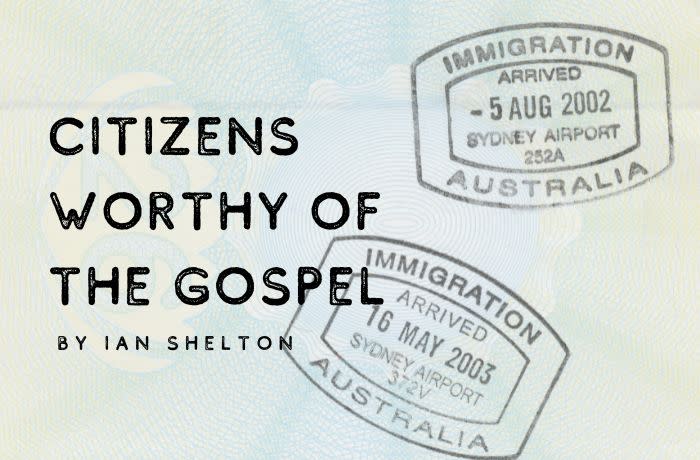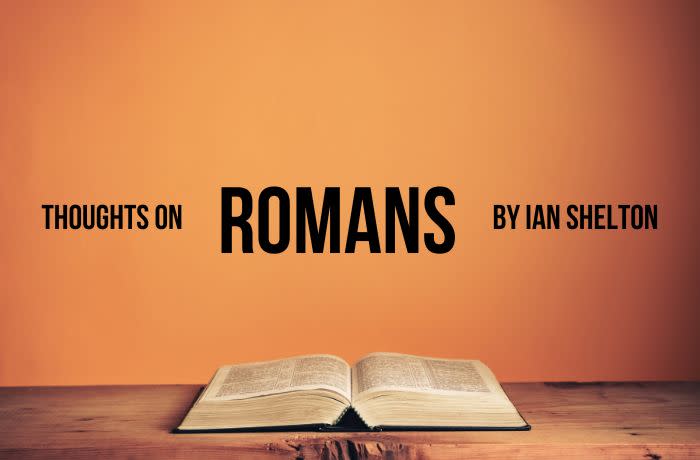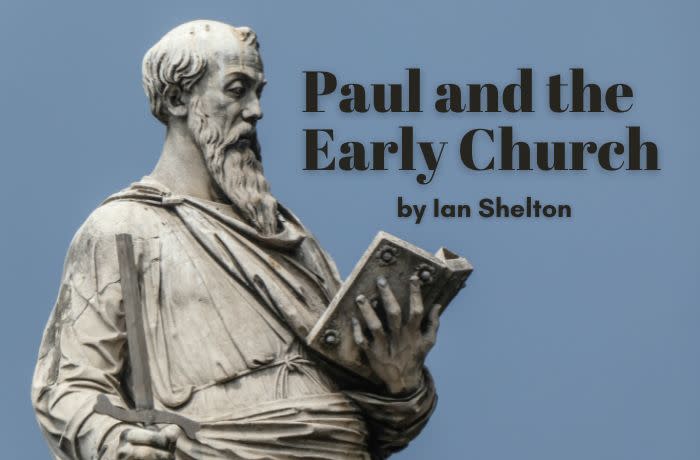Download our vision book
Paul’s letter to the christians at Philippi is a poignant and powerful message to a church that not only impacted its own city, but also cities across the Roman Empire.
Paul writes to “all the saints in Christ Jesus who are in Philippi…” (Phil. 1:1). The whole church of the city, including its leaders, were the subject of this remarkable letter. Paul, though writing from a prison cell, pens what has been called the “epistle of joy.”
Paul’s concern in this letter was to advance the gospel through the deep relational partnerships that he has forged with the Christians of this city. These partnerships not only caused the gospel to advance in Philippi, but through their support of Paul’s apostolic ministry, the gospel went to the cities of the empire as well. This included financial support. They continued to support him even while he was in prison which says much about the depth of relationship between Paul and the Philippian church.
The key to the advancement of the gospel in any community is the depth of relational partnerships that are forged through the joining of the Lord and enhanced by transparent prayer and communication. This then leads to the common goal of advancing the gospel together.
During twenty years of gospel partnerships in my city, a group of leaders became wonderful friends. It could be said the gospel advanced through friendships, which were a deep relational connection with purpose and intent. Little by little strategic actions were forged not out of programs but out of our love for one another. We were greatly motivated and inspired by the Spirit as we prayed and related together.
Reading Philippians through relational eyes I am impacted by the deep love and affection they had for Paul and for each other. This church was a joyful and loving church committed to the advancement of the gospel in their world.
Just imagine if all the Christians in your city, or at least your part of the city, were deeply committed to each other, sacrificially meeting each other’s needs and all the while spreading the gospel through word and deed into the wider community.
The key to their city engagement was their dual citizenship. This is what we can learn from the Philippian church as they lived out this dual citizenship. Paul in Philippians 3:20 declared that their citizenship was in heaven. All Christians can identify with that truth and rejoice in this eternal reality.
The church was a colony of Heaven in the city of Philippi. This had relevance in more ways than one as Philippi itself was a colony of Rome. Actually it was a Roman city planted in what we now call northern Greece. It was Roman in every way from its architecture to its laws and including the way it was governed.
Paul called the church, for the sake of the gospel, to also be citizens of Philippi, hence a dual citizenship! Their Heavenly citizenship was to inform and shape their Philippian citizenship. Philippians 1:27-2:18, a passage not always seen in context explains how the church can be a bright light in the dark world of Philippi.
Bruce Winter in this wonderful book, Seek the Welfare of the City, says that Philippians 1:27-2:18 was intended by Paul to emphasise one overall thought in the context of being citizens of Philippi. Many bible translations don’t translate 1:27 correctly. My NASB says, “Only conduct yourselves in a manner worthy of the gospel…” However in the original Greek the word for “citizenship” is in this opening phrase.
The opening phrase could be better translated, “Above all, or at all costs, live as citizens worthy of the gospel…” The Greek word for citizen in this scripture comes from polis meaning a city. The Pillar commentary on this passage says this; “The imperative (politeuesthe) literally means "to be citizens" or to "discharge your obligations as citizens." The verb is built on the noun polis (city) and connotes the political duties of citizens of a city.”
As Winter explains in his book, Christian’s have a civic responsibility to seek the welfare of the city. The idea is not passive but exhorts this church to be actively working for the good of the city. This, of course, is the thought behind Jeremiah 29:7. The Pillar commentary goes onto say; “Paul wants members of the church to be united (1:27; 2:2) so that they will "shine like stars" in the midst of their "crooked and depraved generation" (2:15). Their good conduct as citizens in their heavenly colony, the church, will be a brilliant witness in their life as citizens in Philippi, the Roman colony.”
And again from Pillar; “Paul's concept of dual citizenship can be conveyed by an expanded paraphrase: As good citizens of Philippi and as good citizens of Heaven live in a manner worthy of the gospel of Christ!” (1:27a).
Christians have a civic responsibility to their cities. In terms of reaching a city with the gospel this is of utmost importance. Not to be good citizens is to be unworthy of the gospel.
This passage, Philippians 1:27-2:18, goes onto explain what it means to be citizens of the gospel. After the injunction to be good citizens, Paul urges the people to stand firm and strive together like an army in the face of the spiritual warfare that rages around them. This requires belief and a readiness to suffer for the gospel. Paul continues by calling for a depth of relational unity where selfishness is replaced by a humility that seeks others’ interests and importance before their own (Phil 1:27-2:4).
In short, good Christians who are good citizens are united in love, spirit and purpose (Phil. 2:2).
Then comes a passage that is considered one of the most significant passages in The Bible. (Phil 2:6-11). This profound passage outlining the journey of Jesus coming from His exalted place with His Father in heaven to earth as a man and then to the cross is to be our “together attitude” as the church in the city. The Father’s final exaltation of Jesus to rule over all can only bring us to our knees in worship and wonder of the One who rules the universe.
Finally, a people who live like Jesus in such relational unity will be “lights in the world.” (Phil 2:16).
In summary this whole passage (Phil 1:27-2:18) is written to show us what sort of people the church in a city needs to be if we are to be “citizens worthy of the gospel” shining as a light into the darkness of our communities.
Over a decade or more in our city many took the responsibility that as Christians they were to “give back” to their community, ie., exercise civic responsibility. Several became involved in political parties, others in business groups, many served the needs of the marginalised and the list goes on. It was only ever a beginning, but it was a beginning.
The importance of “place” and our responsibility for its “welfare” is in need of an urgent discussion among Christian leaders.
By Ian Shelton Coordinator of Movement Australia



